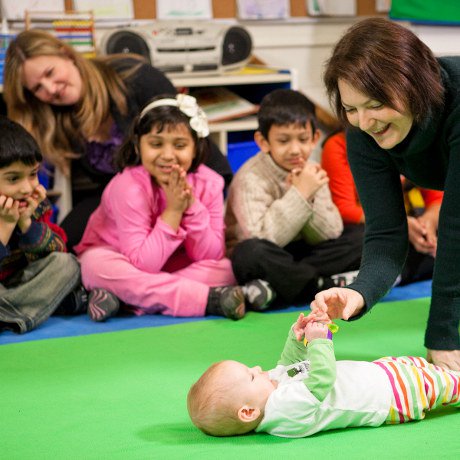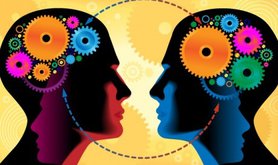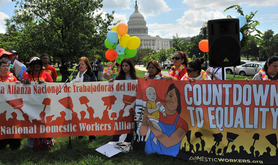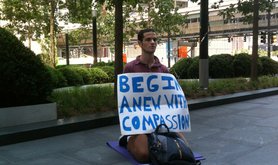
Credit: Melanie Gordon. All rights reserved.
What’s the measure of a good education, and what do you want your children to learn in school? Basic proficiency in language, literacy and mathematics perhaps, or a marketable set of skills, or is the purpose of education something deeper? In today’s hyper-competitive culture where standardized test results are used as a proxy for educational advancement, what chance is there for schools to develop creativity, critical thinking, human solidarity and civic skills?
Canadian writer, social entrepreneur and educator Mary Gordon believes that empathy is central to a successful democracy. In 1996 she founded Roots of Empathy, which offers programs in Canada, the USA, the UK, Europe and New Zealand. The program brings infants and their parents into the classroom so that children can learn to identify their own feelings and the feelings of others through guided observation of these loving relationships. Gordon is convinced that empathy can be “caught but not so easily taught” in this way, and she says she has the proof. But is this true, and is empathy as important as she thinks? To find out more, I spoke to Mary Gordon.
LF: Empathy is often deemed a “soft skill” in schools, in contrast to mathematics or literacy. What’s so important about empathy in education?
MG: Well, I’d ask, what is the purpose of education? If it’s to raise citizens to contribute solely to the GDP of a country, then a focus on “hard skills” will meet that objective. But what is the other part of citizenship, beyond people’s economic contributions? What is the soul of a society? What are our metrics to define a successful education? As important as it is to teach children to read, it is equally important to teach them to relate.
I believe that every person should be both publicly useful and personally happy. If you look at the developmental health and wealth of a nation, it’s undeniably dependent on the emotional health of its citizenry. More specifically, empathy is not just a soft skill; it is also the base of pro-social behavior. If you can’t understand the impact of your actions on others, your actions are not fully informed, and therefore they are less likely to be appropriate. So if you develop empathy you have the capacity to understand how what you do, or what you fail to do, affects other people - if you ignore injustice, for example, or fail to rail against racism, or refuse to recycle. That’s what empathy does. If you have the capacity to take on the perspective of another person (what’s called “perspective-taking” in the jargon), and have the emotional literacy to understand what they are feeling, then you’re more likely to care about them and less likely to hurt them.
Without these capacities you cannot have an accountable or collective society. Although we may have the science to solve the issues of the environment, for example, if we don’t care about people downstream who we don’t see or know, we won’t have the motivation to apply that science. And when we’re failing to respond to the needs of others we also have a less healthy, less equitable, and less participatory democracy – whether at the level of classrooms or nations.
LF: So what should we be doing – can you explain your work with Roots of Empathy?
MG: Roots of Empathy is a classroom-based program which brings an infant and his/her parents into a class, along with an Instructor trained in a focused curriculum. The Instructor guides the children to give labels to the baby’s feelings and discuss what they think the baby is thinking and feeling. The idea is that through experiential learning, children come to understand the baby’s feelings and perspectives, which is the basis of perspective-taking and emotional literacy.
The relationship between a parent and their baby is where empathy begins. We’re innately predisposed to be empathic, but it either flowers or fades in that attachment relationship. It’s cyclical: many children who were not raised in an empathic environment pass that on generationally, becoming ineffective parents themselves and ultimately contributing to the patterns of violence we see in society. The Roots of Empathy program is a disruptive innovation that gives children the ability to think critically, and lays down tracks in their brains for another way of loving and learning.
In a sense, Roots of Empathy is about building participatory democracy on the green blanket that children surround during a class. In classrooms we’re typically responsible for imparting certain information to children and then measuring what they know: we focus on how many apples are left when one is taken, rather than on how someone might feel when an apple is taken from them. Our idea is to shift the focus onto what children think and feel, and what they think other people think and feel. If we can understand and focus on how our actions make others feel, we might make different decisions and act differently. This is very rare.
LF: I’m interested in that distinction. Tell me more about the lasting impact you’re seeing as a result of these experiences.
MG: One of the things that neuroscientists talk about is the power of relationships in learning. Every child in a Roots of Empathy classroom has a relationship with the baby, the parent, the Instructor and their fellow students. And the whole program is about relating: not about regurgitating information or about desk-work, but about relationship-building. When the children leave the classroom they often leave their arithmetic behind, but Roots of Empathy is experiential learning and that’s the difference. When you recognize the humanity and vulnerability of a baby, you come to see yourself and everybody else differently.
What happens on that green blanket becomes a launching pad for self-reflection and self-knowledge. Unfortunately, children often don’t understand how they feel. They can’t talk about their feelings, and they don’t have a good grasp on executive functioning skills. It’s a massive problem in their personal lives and in society at large.
The point of Roots of Empathy is that - through understanding the baby’s feelings and intentions - children do learn about their own feelings and the language to use to describe them, whether it’s “I feel embarrassed,” or “nervous” or “frightened.” Whatever the words are, children learn a vocabulary for emotions that are rarely discussed in schools or outside in society. And this allows them to hear how other children feel. So when I say the green blanket is a launching pad to self-discovery and understanding of the other, it’s because the Instructor says, “The baby is frustrated because she can’t reach a toy. When was a time when you felt the same?” And they’ll reflect on a time when they felt frustrated or angry. That’s the emotional basis of empathy.
Then you have perspective-taking. Normally we teach perspective-taking when children are in trouble and someone says to them, “How do you think so-and-so feels because of what you did?” But that increases stress levels in the child’s brain and blocks their learning. That’s why it’s so important to bring down stress levels in the classroom and increase relaxation and receptivity to learning. And it’s probably why the teachers who host our program often teach their most difficult lessons right after the family visits, because they find the children are most receptive then.
LF: Ok, but it strikes me that many of those who participate in Roots of Empathy classrooms are operating in systems that are distinctly not empathetic. What’s the relationship between your work and the condition of the school system – and of society – at large?
MG: I think institutional change starts with individual change. It’s people who staff the upper echelons of the institutions we speak of as though they’re monsters to whom we have no access. I don’t accept that. I think we have a responsibility to find the cracks and let in some light – to knock on the door, and if it’s not open for us, to break it in. If we don’t make some sort of dent in the institutions that are blocking progress, we will have tomorrow what we have today. And that’s not good enough.
We know that as early as five years old, a child’s learning and overall health is heavily influenced by the situations in which they live – it’s called the neurobiology of affiliation. We know that a child’s brain is exquisitely sensitive during critical periods of their development. Yet the circumstances of early learning and care in the United States remain an abomination. Introducing empathy at every level of society is important, but if we don’t cultivate it in children then its “game-over” I’m afraid.
Many children are exposed to violence – if you look at the statistics around violence, physical, and sexual abuse, they’re alarming. And we know the trajectory for children who are incubated in violence. We also know that in every classroom there are children who’ve been negatively impacted by violence in their homes, but we tend to ignore the statistics.
If we want to do anything about violence in our society, we have to start with children and break the intergenerational cycle. Roots of Empathy gives children an alternative to the experiences they may have had, and it gives them another way of looking at what it’s like to love and be loved. That’s a powerful takeaway. This is not something that’s instructed; it’s something that’s constructed. In the program, we encourage the children to develop their own voice; we teach through experiential questioning. Because the questions relate to the children’s own personal experiences, every child feels equally informed and empowered to contribute: they arrive at their own conclusions.
Increasing empathy in society will have a more profound and lasting impact than increasing GDP.
Read more
Get our weekly email



Comments
We encourage anyone to comment, please consult the oD commenting guidelines if you have any questions.